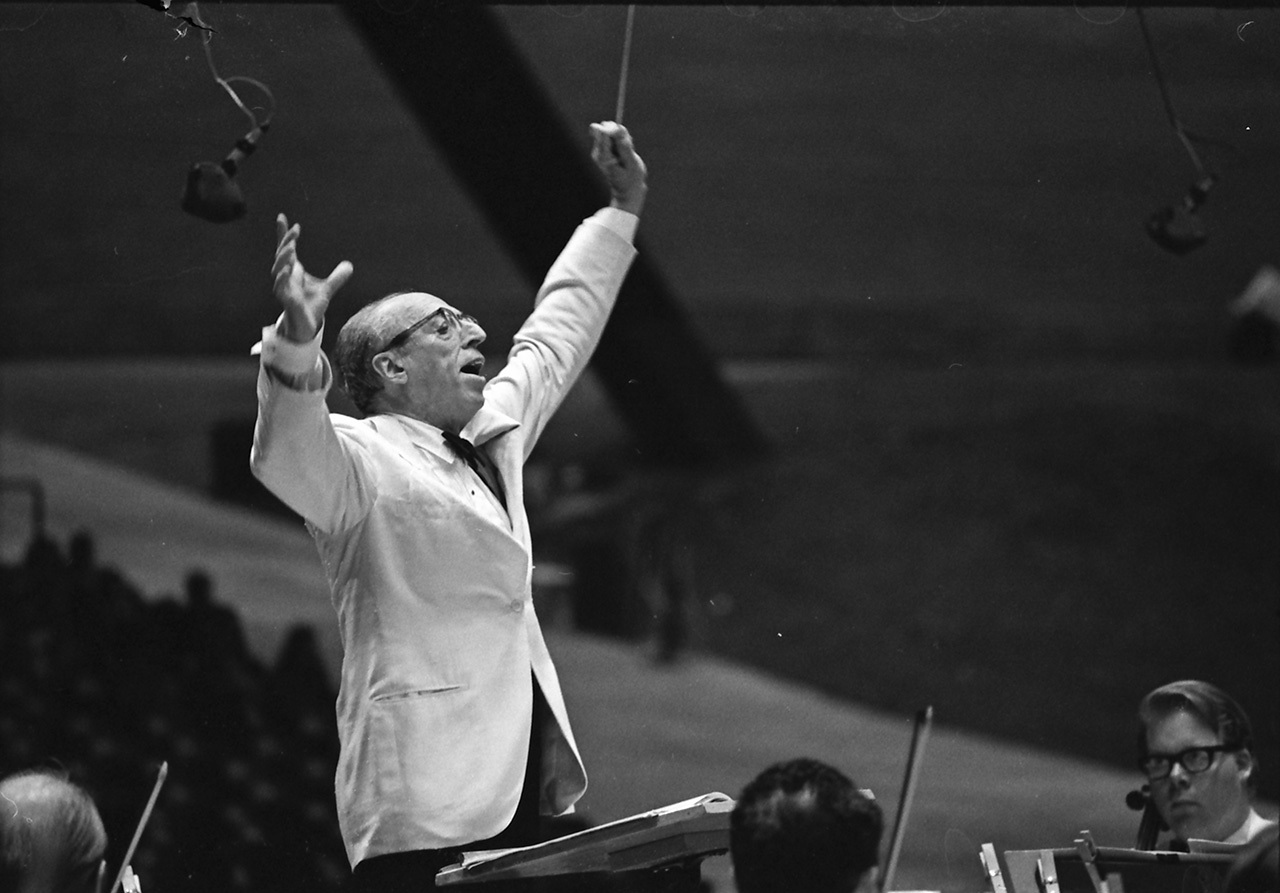
Who was Aaron Copland? Aaron Copland, often called the "Dean of American Composers," was a musical genius who shaped the sound of American classical music. Born in Brooklyn in 1900, he created music that captured the spirit of the American landscape. His works, like "Appalachian Spring" and "Fanfare for the Common Man," are celebrated for their unique blend of classical and folk elements. Copland's influence extended beyond composing; he was also a conductor, teacher, and writer. His contributions to music earned him numerous awards, including a Pulitzer Prize and an Academy Award. Ready to learn more about this iconic figure? Let's dive into 20 amazing facts about Aaron Copland!
Aaron Copland: The Man Behind the Music
Aaron Copland, often called the "Dean of American Composers," left an indelible mark on 20th-century music. His works are celebrated for their distinctively American sound, blending classical traditions with folk and jazz influences.
-
Born in Brooklyn: Aaron Copland was born on November 14, 1900, in Brooklyn, New York. His parents were Jewish immigrants from Lithuania.
-
Early Piano Lessons: He began piano lessons at the age of 13. His sister, Laurine, was his first piano teacher.
-
Parisian Influence: Copland studied in Paris under the renowned teacher Nadia Boulanger. This experience deeply influenced his compositional style.
-
First Major Work: His first major orchestral work, "Symphony for Organ and Orchestra," premiered in 1925. It was performed by the New York Symphony Orchestra.
Copland's Unique Style
Copland's music is known for its open, expansive sound, often evoking the American landscape. He skillfully blended various musical traditions to create something uniquely his own.
-
Incorporation of Folk Music: He often used American folk songs in his compositions. "Appalachian Spring" is a prime example, featuring the Shaker tune "Simple Gifts."
-
Jazz Influences: Jazz elements can be heard in many of his works, including "Music for the Theatre" and "Piano Concerto."
-
Ballet Scores: He composed several famous ballet scores, such as "Billy the Kid," "Rodeo," and "Appalachian Spring."
-
Film Scores: Copland also wrote music for films, including "Of Mice and Men" and "The Heiress," for which he won an Academy Award.
Awards and Recognitions
Throughout his career, Copland received numerous awards and honors, cementing his legacy as a leading figure in American music.
-
Pulitzer Prize: He won the Pulitzer Prize for Music in 1945 for "Appalachian Spring."
-
Presidential Medal of Freedom: In 1964, President Lyndon B. Johnson awarded him the Presidential Medal of Freedom.
-
Kennedy Center Honors: Copland received the Kennedy Center Honors in 1979 for his contributions to American culture.
-
Honorary Degrees: He received honorary degrees from several institutions, including Princeton University and Brandeis University.
Copland's Legacy
Copland's influence extends beyond his compositions. He was also a conductor, teacher, and author, shaping the future of American music.
-
Teaching: He taught at several institutions, including Harvard University and the Tanglewood Music Center.
-
Conducting: Copland conducted many of his own works, as well as those of other composers, with major orchestras around the world.
-
Books: He authored several books on music, including "What to Listen for in Music" and "Music and Imagination."
-
Mentorship: Copland mentored many young composers, including Leonard Bernstein and Elliott Carter.
Personal Life and Interests
Beyond his professional achievements, Copland had a rich personal life filled with diverse interests and passions.
-
Travel: He loved to travel and often drew inspiration from his journeys. His travels to Mexico influenced works like "El Salón México."
-
Photography: Copland was an avid photographer. He enjoyed capturing moments from his travels and daily life.
-
Friendships: He maintained close friendships with other artists and intellectuals, including Martha Graham and Virgil Thomson.
-
Advocacy: Copland was a strong advocate for contemporary music. He co-founded the American Music Center to support new American composers.
Aaron Copland's contributions to music and culture remain influential today. His ability to blend different musical traditions into a uniquely American sound continues to inspire musicians and audiences alike.
The Legacy of Aaron Copland
Aaron Copland's influence on American music is undeniable. Known as the "Dean of American Composers," he crafted pieces that captured the spirit of the nation. From "Appalachian Spring" to "Fanfare for the Common Man," his works remain timeless. Copland didn't just compose; he also educated and inspired future generations. His innovative use of folk tunes and jazz elements set him apart. Even today, his music resonates in concert halls, films, and classrooms. Copland's legacy isn't just in his compositions but in his ability to make classical music accessible to everyone. His contributions have left an indelible mark on the world of music, ensuring his place in history. Whether you're a seasoned listener or new to his work, Copland's music offers something for everyone. Dive into his catalog and experience the magic yourself.
Was this page helpful?
Our commitment to delivering trustworthy and engaging content is at the heart of what we do. Each fact on our site is contributed by real users like you, bringing a wealth of diverse insights and information. To ensure the highest standards of accuracy and reliability, our dedicated editors meticulously review each submission. This process guarantees that the facts we share are not only fascinating but also credible. Trust in our commitment to quality and authenticity as you explore and learn with us.


